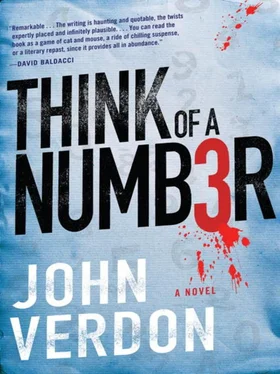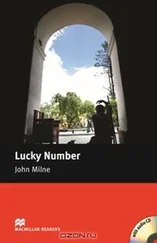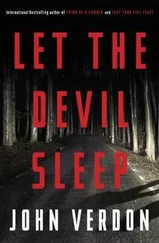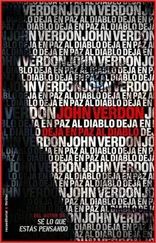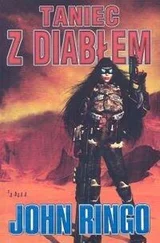“Jesus,” said Gurney. “He just sat there smoking?”
“Yeah. A little relaxation before cutting the victim’s throat. At least that’s the way it looks. I assume your raised eyebrow is a way of asking where the crappy little lawn chair came from? That was my question, too.”
“And?”
“Victim’s wife claimed she’d never seen it before. Seemed appalled at its low quality.”
“What?” Gurney flicked the word out like a whip. Hardwick’s supercilious comments had become nails on a blackboard.
“Just a little levity.” He shrugged. “Can’t let a cut throat get you down. But seriously, it was probably the first time in her posh life that Caddy Smythe-Westerfield Mellery came that close to a chair that cheap.”
Gurney knew all about cop humor and how necessary it was in coping with the routine horrors of the job, but there were occasions it got on his nerves.
“Are you telling me that the killer brought his own lawn chair with him?”
“Looks that way,” said Hardwick, grimacing at the absurdity.
“And after he finished smoking-what, half a dozen Marlboros?-he walked over to the back door of the house, got Mellery to come out on the patio, and slit his throat with a broken bottle? That’s the reconstruction so far?”
Hardwick nodded reluctantly, as though beginning to feel that the crime scenario suggested by the evidence sounded a bit off the wall. And it only got worse.
“Actually,” he said, “‘slit his throat’ is putting it mildly. Victim was stabbed through the throat at least a dozen times. When the medical examiner’s assistants were transferring the body to the van to take it for autopsy, the fucking head almost fell off.”
Gurney looked in the direction of the patio, and although it was entirely obscured by the rhododendrons, the image of the huge bloodstain came back to his mind as colorfully and sharply as if he were staring at it under arc lights.
Hardwick watched him for a while, chewing thoughtfully on his lip. “As a matter of fact,” he said finally, “that’s not the really weird part. The really weird part comes later, when you follow the footprints.”
Footprints to nowhere
Hardwick led Gurney from the back of the barn around the hedges, past the patio to where the tracks of the presumed assailant left the scene of the attack and proceeded across the snow-covered lawn that extended from the back of the house to the edge of the maple forest several hundred feet away.
Not far from the patio, as they were following the footprints in the direction of the woods, they came upon another evidence tech, dressed in the hermetic plastic jumpsuit, surgical cap, and face mask of his trade-designed to protect DNA or other trace evidence from contamination by the collector.
He was squatting about ten feet from the footprints, lifting what appeared to be a shard of brown glass out of the snow with stainless-steel tongs. He’d already bagged three other pieces of similar glass and one large-enough segment of a quart whiskey bottle to be recognizable as such.
“The murder weapon, most likely,” said Hardwick. “But you, ace detective, already knew that. Even knew it was Four Roses.”
“What’s it doing out on the lawn?” asked Gurney, ignoring Hardwick’s needling tone.
“Jeez, I figured you’d know that, too. If you already knew the fucking brand…”
Gurney waited wearily, like he was waiting for a slow computer program to open, and eventually Hardwick answered, “It looks like he carried it away from the body and dropped it over here on his way to the woods. Why did he do that? That’s an excellent question. Maybe he didn’t realize he still had it in his hand. I mean, he just stabbed the victim in the neck a dozen times. That could have absorbed his attention. Then, as he’s walking away across the lawn, he notices he still has it and tosses it aside. At least that makes some kind of sense.”
Gurney nodded, not wholly convinced but unable to offer a better explanation. “Is that the ‘really weird’ element you mentioned?”
“That?” said Hardwick with a laugh that was more of a bark. “You ain’t seen nothin’ yet.”
Ten minutes and half a mile later, the two men arrived at a spot in the maple forest just short of a small copse of white pines. The sound of a passing car indicated they were close to a road, but any sight of it was blocked by the low pine branches.
At first he wasn’t sure why Hardwick had brought him there. Then he saw it-and began studying the ground in the vicinity with growing bewilderment. What he saw made no sense. The footprints they had been following simply stopped. The clear progression of prints in the snow, one after another, proceeding for half a mile or more, simply came to an end. There was no sign of what had happened to the individual who’d made the prints. The snow all around was pristine, untouched by a human foot or by anything else. The trail of footprints stopped a good ten feet from the nearest tree, and, if the sound of that passing vehicle was any indication, at least a hundred yards from the nearest road.
“Am I missing something?” asked Gurney.
“Same thing we’re all missing,” said Hardwick, sounding relieved that Gurney had not come up with a simple explanation that had eluded him and his team.
Gurney examined the ground around the final print more carefully. Just beyond this well-defined impression was a small area of multiple overlapping impressions, all appearing to have been made by the same pair of hiking boots that had created the clear tracks they’d been following. It was as if the killer had walked purposefully to this spot, stood about shifting from foot to foot for a few minutes, perhaps waiting for someone or something, and then… evaporated.
The lunatic possibility that Hardwick was playing a practical joke on him flashed through his mind, but he dismissed it. Tampering with a major murder scene for a laugh would be too far over the edge even for an outrageous character like Hardwick.
So what they were looking at was the way it was.
“The tabloids find out about this, they’ll turn it into an alien abduction,” said Hardwick, as though the words tasted like metal in his mouth. “Reporters will be on this like flies on a barrel of cow shit.”
“You have a more presentable theory?”
“My hopes are riding on the razor-sharp mind of the most revered homicide detective in the history of the NYPD.”
“Cut the crap,” said Gurney. “Has the processing team come up with anything?”
“Nothing that makes sense of this. But they took snow samples from that packed-down spot where it looks like he was standing. Didn’t seem to be any visible foreign matter there, but maybe the lab techs can find something. They also checked the trees and the road behind those pines. Tomorrow they’ll grid out everything within a hundred feet of this spot and take a closer look.”
“But so far they’ve come up with zero?”
“You got it.”
“So what are you left with-asking all the institute guests and neighbors if anyone saw a helicopter lowering a rope into the woods?”
“Nobody did.”
“You asked?”
“Felt like an idiot, but yes. The fact is, someone walked out here this morning-almost certainly the killer. He stopped right here. If a helicopter or the world’s largest crane didn’t lift him out, where the fuck is he?”
“So,” Gurney began, “no helicopters, no ropes, no secret tunnels…”
“Right,” said Hardwick, cutting him off. “And no evidence that he hopped away on a pogo stick.”
“Which leaves us with what?”
“Which leaves us with nothing. Zilch, zippo. Not one goddamn real possibility. And don’t tell me that once the killer walked all the way out here, he walked all the way back-stepping backwards, perfectly, into each footprint, without messing up a single one-just to drive us crazy.” Hardwick looked challengingly at Gurney, as though he might propose this very thing. “Even if that were possible, which it isn’t, the killer would have bumped into the two people who were on the scene by that time, Caddy the wife and Patty the gangster.”
Читать дальше
